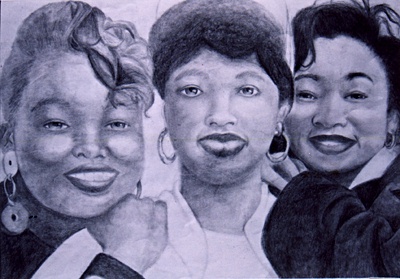All Nonfiction
- Bullying
- Books
- Academic
- Author Interviews
- Celebrity interviews
- College Articles
- College Essays
- Educator of the Year
- Heroes
- Interviews
- Memoir
- Personal Experience
- Sports
- Travel & Culture
All Opinions
- Bullying
- Current Events / Politics
- Discrimination
- Drugs / Alcohol / Smoking
- Entertainment / Celebrities
- Environment
- Love / Relationships
- Movies / Music / TV
- Pop Culture / Trends
- School / College
- Social Issues / Civics
- Spirituality / Religion
- Sports / Hobbies
All Hot Topics
- Bullying
- Community Service
- Environment
- Health
- Letters to the Editor
- Pride & Prejudice
- What Matters
- Back
Summer Guide
- Program Links
- Program Reviews
- Back
College Guide
- College Links
- College Reviews
- College Essays
- College Articles
- Back
Are Catcalls Degrading to Women or No Big Deal?
To most women, living in an urban setting, sexual harassment and in some cases borderline stalking is just part of their daily routine. I feel that the definition of harassment can be interpreted in many different ways, but sexual harassment is relatively specific because it is based off of fear and discomfort. A specific type of sexual harassment that is especially demeaning is called Catcalling. Generally, I find that women who hold themselves to respectable values and morals, or higher standards find catcalling degrading, disrespectful, and a way to objectify and sexualize women. Many women take catcalling as a very serious threat. By simple definition of the word, Catcall (Merriam-Webster) the word means to make a sound or noise that someone (such as an audience member) makes toward a speaker, performer, athlete, etc., that he or she does not like. This definition of the word “catcall” states that the act of being catcalled at is unenjoyable and unpleasant for the recipient.
Brittany Gilbert, creator of a blog that recounting her experiences of being catcalled, stated in an interview with CNN,
"I had no idea [how being assaulted felt] until it happened to me, how incredibly violating it was. I felt really icky. It made me feel like crying, it made me feel like vomiting. I was just violated against my will. I wanted to get these feelings down on paper for myself. I just wanted to tell one story of what happened and it's not exaggerated."
I feel that catcalling is another way for men to objecttify women, by calling to us like we are property, or something to be owned, which I believe is one of the feelings that Brittany is trying to express. I personally can relate to Brittany, during a summer program at the University of Michigan while walking in downtown Ann Arbor, a few friends and I were catcalled by a few older males. The experience of being catcalled can make one feel helpless, self- conscious and personally victimized. Based off this experience I find catcallers be ignorant and self-absorbed individuals who have no sense of respect for other persons. They often have no standards for themselves or of others.
On the opposite of this spectrum, the men who catcall believe that they are being complementary, giving a “self-esteem” boost to women. Acknowledging them as being beautiful and independent. CNN recently conducted a study where they asked men living the urban area of Atlanta what they thought about catcalling. One man’s response, Jay Woods, was that, “Women get treated the way they allow themselves to get treated." Upon reading this I wondered if before answering this question Jay took a minute to put women that he loves in the same boat that he’s putting women in general, because according to him women deserve to be treated this way because of the way we dress. In another light this comment is also saying that men have the right to dress however they would like without fear of being sexualized, but women do not. It’s implied in the First amendment of the Constitution that we the have freedom of expression, which indirectly states that one may dress however one choses to. Catcalling should never be deemed appropriate because of a women’s age, dress, appearance, education, or economic status of the person involved.
We have to learn how to fight back in order to change this social injustice and others like it, we all have to become leaders in our communities and inspire others to make a real difference in the world. Emily May and Mirabelle Jones have become those leaders in their community by starting organizations and performing protest pieces. Emily May, leader of group called Hollaback! -- an international organization that's trying to end street harassment using crowdsourcing by offering women a place where they can post their stories and pictures using the Hollaback! app or website. Mirabelle Jones, a performance artist who works with the group Hollaback LA! as well as her own organization Art Against Assault, Subjected herself to more than 8 hours of catcalling to prove the point that, “catcalling, while largely viewed as ‘harmless,’ can be an act of violence against women, making them feel unsafe and exposed in public spaces. And it’s never OK.” Just imagine seeing your mom or daughter get verbally assaulted everyday while just trying to accomplish everyday tasks like going to work. How would that make you feel? This blatant sexual harassment of women can happen anyone: mothers, daughters, and other female friends and family.

Similar Articles
JOIN THE DISCUSSION
This article has 0 comments.

I hope that people will understand my opinion and can maybe agree with it. I hope that people try to see that catcalling is a way of objectifying women and that my piece inspires them to change not only themselves but their communities aswell.